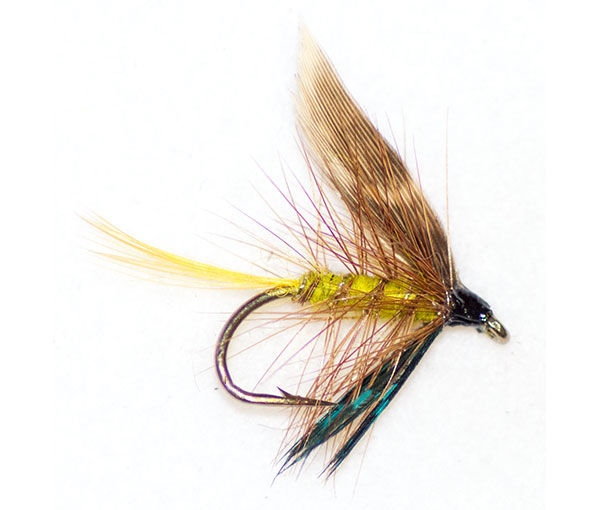As Time Goes By.....No.5
- Northern Game
- Oct 3, 2021
- 2 min read
Following on from our last 'As Time Goes By' blog post, we are staying with the renowned fly tyer, James Ogden of Cheltenham.
One of the most consistently effective hatching sedge patterns has to be the Invicta, in one of its various forms (standard, silver, gold, pearly, white, etc.).
The Invicta (or Victor as it is sometimes referred to) was invented by Ogden in 1879 and quickly gained a reputation as a trout catcher on the large stillwaters of England and the lochs of Scotland. Although tied as an imitation of a dark sedge, it can also do particularly well when large Caddis flies are about.
Whilst it is normally fished on a top dropper as a wake fly, with sometimes spectacular takes, it can be equally as effective when fished deeper on the point, especially in early spring.
There is a lot going on material wise in this fly and it is very easy to over tie it. The secret here is to apply the body fairly sparsely to avoid bulking it up and wind the body hackle so it only thinly veils the body and doesn't hide it.
Some tyers tie the body hackle in by the tip at the tail end and wind it up the body. I personally prefer, as with all my palmered dressings, to tie it in at the head in the normal fashion and wind it down the body. I then secure the hackle with the tinsel rib. It might just be me but I find the hackle lies more 'naturally' this way.
The body can be made out of seals fur or teased out yellow wool or floss. I prefer the seals fur as I find wool and floss tend to have a bit of a 'dead' appearance in the water, whereas the seals fur has a bit of natural movement and shape to it
The dressing is as follows -
Hook - Down eye sizes 8 to 14
Thread - Black (or primrose yellow if you prefer). Well waxed
Tail - Golden Pheasant Crest
Body - Yellow seals fur or teased out yellow wool
Rib - Oval gold tinsel. Gold wire can be used on the smaller sizes
Body Hackle - Red Game cock hackle
Shoulder Hackle - Red Game cock hackle if preferred on the larger sizes
Throat Hackle - Blue Jay or Blue Guinea Fowl as a substitute
Wing - Hen Pheasant centre tail


Comments